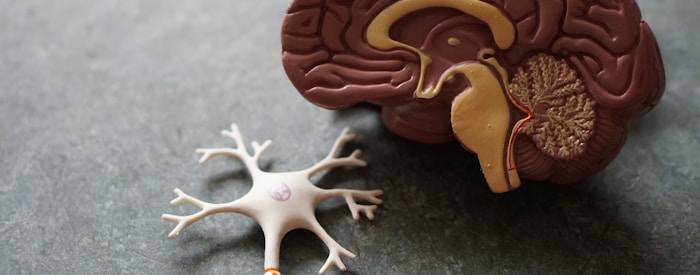The quiet science of mindfulness
In the midst of our fast-paced lives, we often forget to slow down, take a deep breath and truly appreciate the present moment. The world rushes by, leaving many of us feeling overwhelmed and anxious. Yet, even in the chaos, there is a powerful tool available to each of us - the practice of mindfulness. When we tap into the science behind mindfulness, we uncover an abundance of benefits that go beyond stress reduction, enabling us to step into a calmer, more centered state of being.
At its core, mindfulness is the act of paying attention to the present moment in a non-judgmental way. By fostering a deep sense of self-awareness, we regain the ability to feel all that is happening within and around us without getting caught up in the whirlwind of our thoughts. But how exactly does mindfulness reduce stress and anxiety, and why does it have such a profound impact on our overall well-being?
To unravel the mysteries of mindfulness, we must first dive into the intricacies of the brain. Our minds possess a natural tendency to wander, leading to a state known as “default mode network” (DMN). In DMN, we are constantly ruminating over the past, worrying about the future or engaging in self-referential thought. Studies have shown that excessive activity in the DMN is linked to increased levels of anxiety, depression and overall mental distress.
Mindfulness meditation helps counteract this pattern by training the mind to focus on the here and now. By directing our attention to the breath, the sensations in the body, or any other anchor point, we foster a greater understanding of our thoughts and emotions. This increased awareness helps us recognize when our minds start to drift, gently bringing them back to the present moment.
So how does mindfulness affect the brain to produce these calming effects?
Firstly, mindfulness promotes the release of gamma-aminobutyric acid (GABA) - a neurotransmitter responsible for calming the central nervous system. GABA essentially acts as a natural tranquilizer, reducing anxiety and stress by inhibiting overactive neurons. Mindfulness meditation has been shown to increase GABA levels substantially, thus creating a sense of inner peace and tranquility.
Secondly, the practice of mindfulness alters the very structure of our brains. It increases the thickness of the prefrontal cortex - the part of the brain responsible for executive functions like planning, problem-solving and decision-making. This enables us to respond to stressors in a more adaptive, rational manner rather than succumbing to the impulsive, emotionally-driven reactions that often fuel anxiety.
Moreover, mindfulness can actually shrink the amygdala - the brain’s “fear center” responsible for initiating the stress response. As the amygdala decreases in size, research shows that we become less reactive to stress and anxiety, as well as more adept at maintaining emotional balance.
It is important to note that mindfulness is not a one-size-fits-all solution; rather, it is a highly personal practice that requires consistent dedication and patience. The journey towards increased self-awareness and inner peace is a lifelong process, marked by moments of insight and growth. While it can be challenging at times, recognize that you are building a foundation for greater resilience in the face of life’s inevitable challenges.
Simply start by setting aside a few minutes each day to focus on your breath, allowing your thoughts to come and go without judgment. Remember that mindfulness is not about stopping your thoughts, but about observing them and gently guiding your attention back to the present moment. Over time, you may choose to experiment with different mindfulness techniques or incorporate practices like yoga and tai chi to deepen your connection to the present moment.
As you journey through the landscape of your inner world, know that the benefits of mindfulness extend far beyond stress reduction. By cultivating a greater understanding of ourselves and our experiences, we open the door to increased compassion, empathy and connection with others. Ultimately, we discover that beneath the surface of our thoughts and emotions, there exists an ever-present reservoir of stillness and peace, accessible to us in each and every moment.
Wishing you a serene adventure into the science and practice of mindfulness.
Jamie


Each month, you'll receive a carefully curated collection of stress-relieving items, from soothing aromatherapy to mindfulness journals, to help you cultivate a more peaceful and balanced lifestyle.
Designed by experts in stress management and mental wellness, calmbox provides you with the tools and resources to create a personal sanctuary of calm, right at home.


